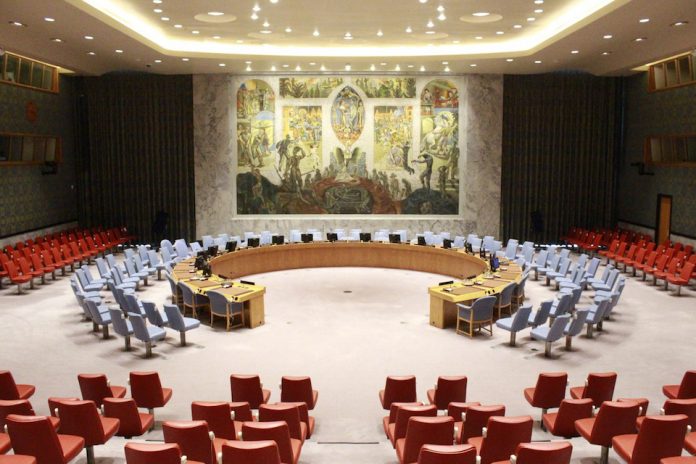Thank you, Mr President, and thank you to UN Special Coordinator Mladenov for his briefing.
The United Kingdom has continued to support the progress made on normalising relations between Bahrain, the United Arab Emirates and Israel. We hope others will follow suit for the benefit of the whole region, and we therefore welcome Friday’s statement from the Governments of Sudan, Israel and the United States of America on the normalisation of relations between Israel and Sudan. As Foreign Secretary Dominic Raab has said, “this step is a boost for the democratic transition in Sudan and peace in the region.”
Last month, Mr President, I stated that such agreements represent a profound shift in the region, a shift which must now proceed in parallel with steps to resolve the Israeli-Palestinian conflict. There is much to be done to rebuild trust. The suspension of the threat of annexation was the first step on this road. It must now become permanent. It is vital that the Palestinian Authority resumes cooperation with Israel and that the Israeli and Palestinian leaderships come together in dialogue to pursue the path of peace. That is the consistent message of my Foreign Secretary.
To rebuild trust, we must see an end to the detrimental action on the ground. Mr President, we are particularly concerned by the announcement on 15 October of nearly 5,000 settlement units, many deep in the West Bank. The expansion of settlements violates international law and is a counterproductive step in light of the positive developments I’ve spoken of between Israel and its neighbours. Alongside European partners, the United Kingdom has made clear our strong opposition to this latest settlement advancement.
The United Kingdom also remains concerned about demolitions of Palestinian buildings and evictions of Palestinians from their homes across the West Bank, including East Jerusalem. Demolitions and evictions in 2020 have proceeded at a concerning pace.
Mr President, the UK is seriously concerned by the possible demolition by Israeli authorities of a Palestinian school funded by the international community in Ras Al-Tin. The right to education is basic, and it is essential to have a strong and thriving Palestinian education system in order to provide opportunities for the next generation. We call on Israel to halt such actions.
Mr President, the United Kingdom has expressed our concern of the increase in settler violence, the destruction of olive trees and the stealing of projects coinciding with the Palestinian olive harvest. As the occupying power, the Israeli security forces must provide appropriate protection to the Palestinian civilian population.
And in Gaza, while relative calm has resumed, the Israeli Defense Force’s discovery on 22 October of a tunnel penetrating dozens of yards into Israeli territory is of great concern. There have also been further rocket launches this month and a return to launching IED “balloons” by Gaza’s militant groups. The UK condemns such indiscriminate attacks against Israeli civilians. We continue to call upon Hamas and other terrorist groups to permanently end their incitement and rocket fire against Israel. These negative actions must stop. We urge the parties instead to pursue confidence-building measures to build the foundations of future final status discussions. The Palestinian Authority must resume cooperation with Israel. We urge progress on economic issues and the facilitation of trade. Settlements, demolitions and evictions must stop. Rocket fire and incitement will not be tolerated.
Mr President, the United Kingdom remains committed to taking forward progress on efforts towards a peaceful resolution of the Israeli-Palestinian conflict. We continue to support a two-state solution, based on 1967 lines, with Jerusalem as a shared capital. We restate our support for regional and international efforts aimed at facilitating a peace process. Ultimately, there is no substitute for direct talks between the Palestinians and Israel, which is the only way to reach a sustainable peace.
Thank you, Mr President.







